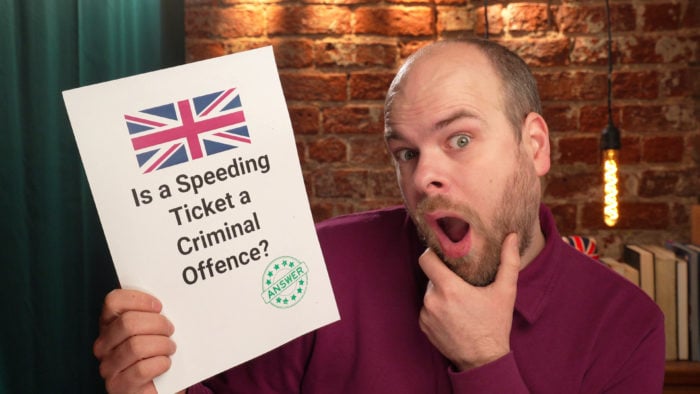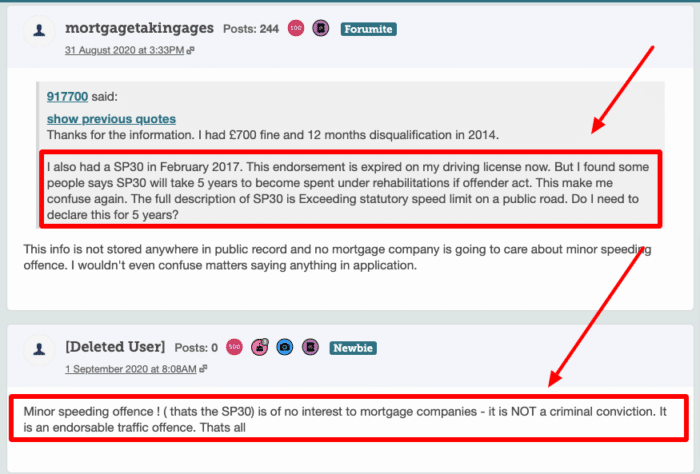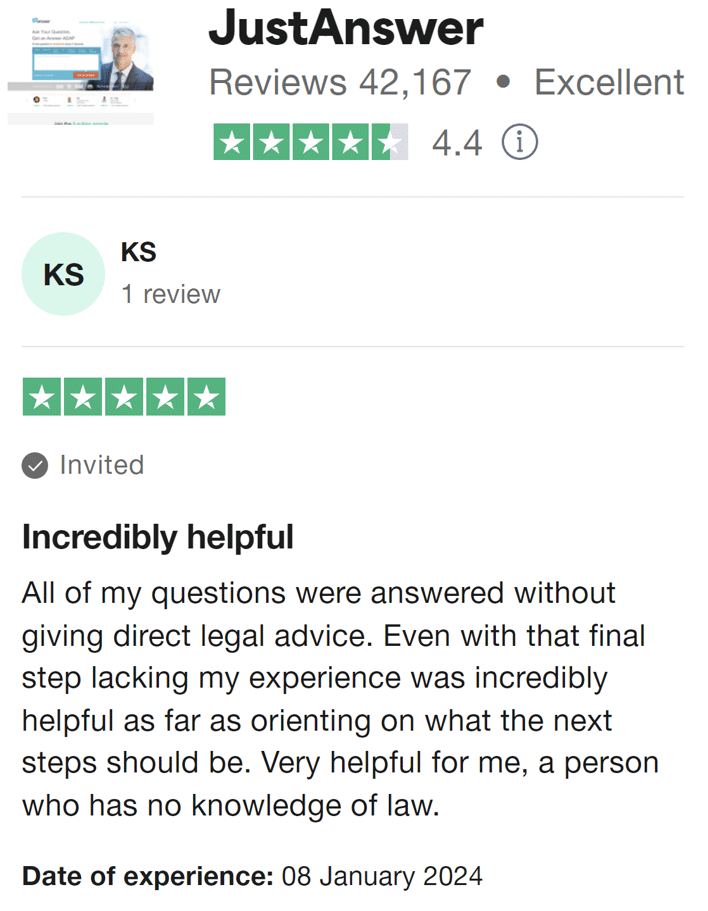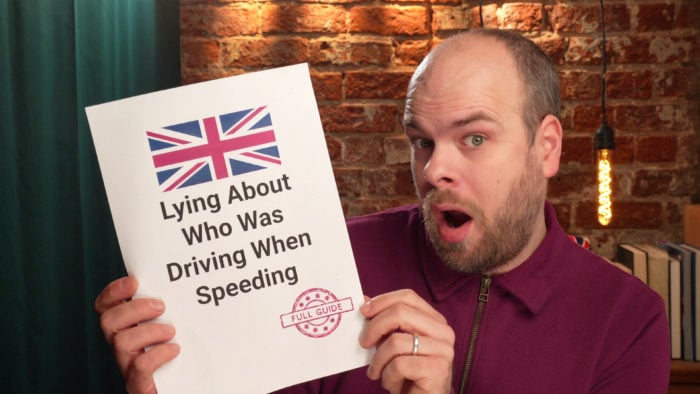Is a Speeding Ticket a Criminal Offence?

Have you got a speeding ticket and are wondering if it constitutes a criminal offence?
You’ve come to the right place for answers. Every month, over 130,000 people visit our website seeking advice on fines and parking tickets.
This guide will explain:
- What a Fixed Penalty Notice is
- If you need to pay it right away
- How you can question the notice
- Times when you might not need to pay
- What could happen if you choose not to pay
It’s quite common to feel concerned and stressed due to a Fixed Penalty Notice. In fact, a group of MPs and Peers say FPNs, which can cost up to £10,000, are hard to understand and might be unfair.1
Don’t worry; we’re here to help you understand your options and make the best choice for your situation.
Around 50% of Appeals Succeed
In some circumstances, you might have a legitimate reason not to pay your speeding fine.
It’s a bit sneaky, but the last time I needed legal advice, I paid £5 for a trial to chat with an online solicitor called JustAnswer.
Not only did I save £50 on solicitor fees, I also won my case and didn’t have to pay my £271 fine.
Chat below to get stared with JustAnswer.
*Carwow reports around 50% of appeals are successful, so it’s well worth a try.
Will I get a criminal record?
A speeding ticket isn’t classified as a criminal offence if dealt with on time.
You won’t be given a criminal record if you pay the Fixed Penalty Notice and accept the penalty points, and there are no further legal ramifications.
However, ignoring the Fixed Penalty Notice can result in a prosecution and a criminal record, as it is breaking the law.
Remember that if you are a professional job – such as a taxi driver, courier or HGV driver- you may find additional consequences for speeding from your employer or regulating body.
How About in Scotland?
Speeding on its own isn’t classed as a criminal offence in Scotland under Scottish traffic laws.
The matter will be referred to the District Court for prosecution if the fine isn’t paid. It could become an offence if you purposefully ignore the speeding fine.
» TAKE ACTION NOW: Get legal support from JustAnswer
Will it appear on a CRB check?
A paid speeding fine won’t have resulted in a criminal conviction and, therefore, won’t appear on a CRB or DBS check.
Thus, you won’t be obligated to disclose speeding fines when applying for a job.
Successful Appeal Case Study
Situation
| Initial Fine | £100 |
| Additional Fees | £171 |
| Total Fine | £271 |
The Appeal Process
Scott used JustAnswer, online legal service to enhance his appeal. The trial of this cost him just £5.
| Total Fine | £271 |
| Cost of legal advice | £5 |
JustAnswer helped Scott craft the best appeal possible and he was able to win his case.
Scott’s fine was cancelled and he only paid £5 for the legal help.
In partnership with Just Answer.
Can it result in a conviction?
Some driving offences are considered criminal offences and can result in a criminal conviction and a criminal record because they break motor vehicle laws.
However, speeding alone is unlikely to result in a criminal conviction. You must pay the speeding ticket and accept the penalty points to avoid prosecution.

You can’t be sent to prison for speeding alone. But you can be sent to prison for speeding if it’s in conjunction with another offence, such as:
But there are caps on the amount you can be fined. On a motorway, the most you can be fined is £2,500. And on other roads, the most you can be fined is £1,000.
Can you go to jail?
Typically, you can go to jail for speeding if it results in one of the following scenarios:
- Driving under the influence of drugs or alcohol
- Failing to stop after a serious accident
- Causing death by dangerous driving
Can you appeal a fine?
Most police forces don’t provide a formal appeals process for contesting a ticket. This is why the only way to “appeal” the speeding fine is to allow the matter to escalate to court.
Getting a speeding ticket cancelled by a judge can be very difficult.
As long as the police can provide evidence that you were over the speed limit at any time, the ticket won’t be cancelled.
You might stand a chance of winning an appeal if speed signs were damaged, vandalised or removed. Or you will get it cancelled if the car has been stolen.
Join thousands of others who got legal help for a £5 trial
Getting the support of a Solicitor can take a huge weight off your mind.
Reviews shown are for JustAnswer.
How much is it?
Speeding fines are calculated based on your weekly income and how much you were over the speed limit, classified by bands from A to F.
For example, Band A typically produces a fine between 25% and 75% of your weekly income, while Band F can be for as much as 700%.
Speed Awareness Courses as an Alternative
Provided that the nature of the offence is only minor, you could be eligible for a speed awareness course at your nearest centre.
It typically only takes a few hours; nowadays, you can even take a speed awareness course online. A speed awareness course can save you from getting penalty points on your driving licence.
You’ll qualify for a speed awareness course if it’s your first speeding offence or you haven’t been caught in the past three years.
On top of that, set speeds qualify for a speed awareness course, so if you were speeding by more than these amounts, you wouldn’t be given the option of a course.
You’re only eligible for a speed awareness course if the police offer it to you as a choice.
The amount by which you can break the speed limit and still be eligible to take a speed awareness course is between 10% of the speed limit plus two mph to 10% of the limit plus nine mph.
However, this is dependent on the specific rules set out by the prosecuting police force.
- 30mph limit: speeding between 35mph and 42mph
- 40mph limit: speeding between 46mph and 53mph
- 50mph limit: speeding between 57mph and 64mph
- 60mph limit: speeding between 68mph and 75mph
- 70mph limit: speeding between 79mph and 86mph
How to avoid fines
The only way to avoid speeding fines is to obey road rules and keep below the speed limit.
But sometimes we can go over the speed limit without realising, especially if we’re driving a different car or on roads we’re familiar with.
Technologies have become so good at keeping us in check on the roads and practice safe driving.
Some satellite navigation systems can alert us when we reach or exceed the speed limit, so we can instantly reduce our speed and get back within the limit.
Moreover, if you’re not 100% sure of the speed limit on a road, it’s best to assume it’s the lower speed limit so you are sure you don’t get fined and are obeying traffic laws.
Hire a Solicitor for less than a coffee.
If you’re thinking about appealing your speeding fine then getting some professional advice is a good idea.
Getting the support of a Solicitor can make your appeal much more likely to win.
For a £5 trial, Solicitors from JustAnswer can look at your case and help you create an airtight appeal.
Try it below
In partnership with Just Answer.


